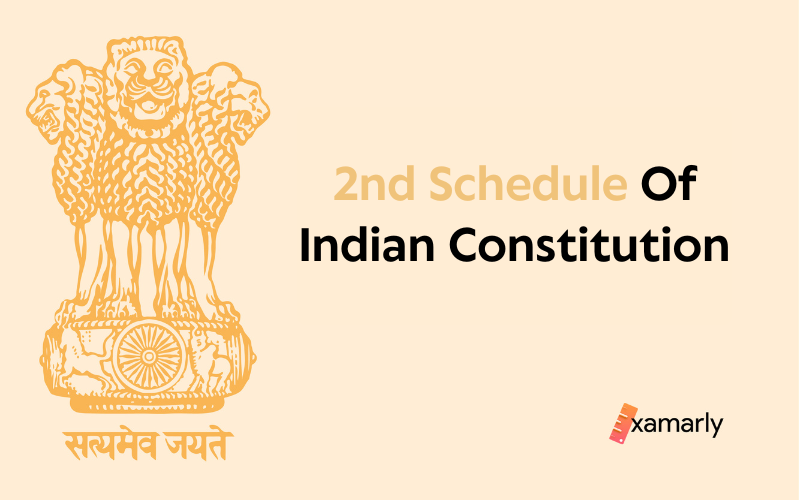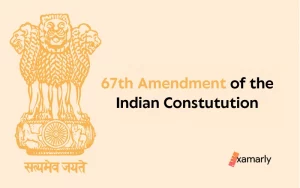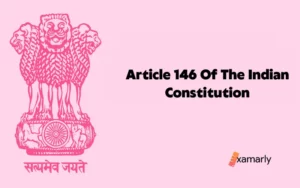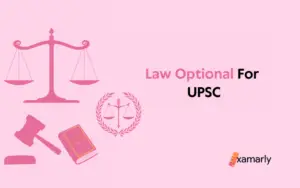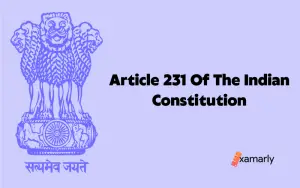The Indian Constitution consists of twelve schedules including the 2nd schedule of Indian Constitution. The Government of India Act of 1935, which featured 10 Schedules, provided one of the earliest references to Schedules. Later, in 1949, in the post-independence era, when the Constitution came into force, only eight schedules were included. Now we have an extra four schedules in addition to the existing original count as the amendments were enacted. Thus, the number of schedules in the Constitution of India has risen to twelve.
Schedule 2 of Indian Constitution contains a list of the allowances and privileges granted to various offices within the Government of India. Read it further to learn all about the second schedule of Indian Constitution. This article is helpful for the UPSC Exam preparation as it is a part of the Indian Polity of UPSC Syllabus.
What Is The 2nd Schedule Of Indian Constitution?
Schedule 2 of the Indian Constitution comprises provisions related to the salaries, allowances, and additional grants of the President of India, the Governors of Indian States, the Speaker and the Deputy Speaker of Lok Sabha, the Chairman and the Deputy Chairman of the Rajya Sabha, the Speaker and the Deputy Speaker of the Legislative Assembly, the Chairman and the Deputy Chairman of the Legislative Councils of the Indian States, the Judges of the Supreme Court and the High Courts and, the Comptroller and Auditor-General of India (CAG).
Main Provisions
The whole Schedule 2 is broken further into many “Parts”. All of these parts discuss the provisions relating to emoluments including salaries, allowances, and privileges vested with different office-holders in the government of India. They are as follows:
- Part A: Discussions on the Provisions for The President and The Governors of States are included in Part A (Articles – 59(3), 65(3), 158(3))
- Part C: This part serves information regarding the Provisions for The Speaker and The Deputy Speaker of The House of The People and The Chairman and The Deputy Chairman of The Council of States and The Speaker and The Deputy Speaker of The Legislative Assembly and The Chairman and The Deputy Chairman of The Legislative Council of a State (Articles – 97, 186)
- Part D: This part lists the Provisions for The Judges of The Supreme Court and The High Courts (Articles – 125, 221)
- Part E relates to the Provisions for The Comptroller and Auditor-General of India (Article – 148(3))
Additional information: The 7th Constitutional Amendment that came out in 1956 excluded the provisions for the Ministers for the Union and the states in Part A and Part B of the First Schedule(Articles – 75(6), 164(5)).
Constitutional Articles Attached With The Schedule 2 Of Indian Constitution
The Constitutional articles which are to be studied in conjunction with the Second Schedule of Indian Constitution are Articles 59, 65, 75, 97, 125, 148, 158, 164, 186, and 221.
Link of the Relatable Articles:
Conclusion
It was hard to enumerate the various allowances, privileges, and emoluments of so many constitutional posts in the Articles of the Constitution. Indeed, a lot of details were present. As a result, those were shifted to the Second Schedule of Indian Constitution.
From the First Schedule to the Twelfth Schedule, we see a total of 12 schedules in the Indian Constitution.
FAQs
How Should I Make My Own notes In Polity?
Sift through the previous year questions of both Prelims and Mains. Make a spreadsheet of Subject-wise questions to gain better insight into the frequently repeated questions. Prepare those sections of the syllabus with utmost diligence.
Which Schedule Contains The Anti-Defection Law?
The tenth schedule has the Anti-defection Law Note, which highlights details about party changes and disqualification of MP/MLA. This schedule redefines the allocation of seats in the parliament and ensures that the Government of India holds intact in case there are only a few instances of party-hopping.


